This weekend I watched the new Netflix series, Wednesday. For those who haven’t been aware of this series, it is a Tim Burton-led spin-off of The Addams Family which focuses on the Addams’ daughter, Wednesday. Here’s the trailer to give you an idea of what to expect:
Now, I’m a big fan of the Addams Family as a franchise, but it would be disingenuous to suggest that it was a bastion of consistent quality. This is a series with some soaring highs and plunging lows. Where does this fit in? In addition to the review, my intention is also to discuss how one could play an RPG based on this piece of media.
For this review, you should expect to see no spoilers for Wednesday.
Part 1: The Review
Well, I’ve got mixed feelings that ultimately veer toward the positive. I’m going to open with a negative because it’s my biggest problem with the series and it is quite fundamental. Wednesday Addams and the rest of her clan are odd. They stick out as strange and unsettling. They appear this way in comparison to normal people, living ordinary, suburban lives. That’s how the Addams Family should work. The premise of this show sees Wednesday attending a school full of werewolves, Vampires, Sirens, Gorgons, and other misfits. ‘Outcasts’ is the term they use. Among these ‘Outcasts’, Wednesday does still stand out as particularly morbid and morose, but ultimately, she’s not as strange. She doesn’t embody the ‘otherness’ of the family in this setting. And that’s fine, I suppose. This is the story that Burton wanted to tell, and the Nevermore Academy was the setting he chose for this tale. It’s just not really what the Addams Family has traditionally been about.
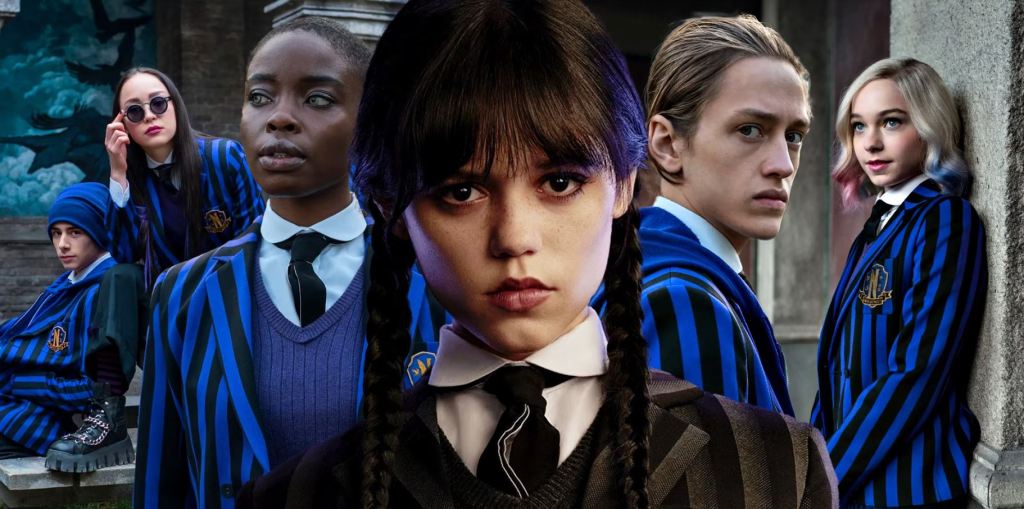
With that specific criticism out of the way, let’s touch on the acting. The young actors in this show are incredible. There’s not one Nevermore student who does not knock it out of the park. At the forefront of this is Jenna Ortega herself. She plays Wednesday to perfection. The character, as interpreted by Ortega, is spooky (her word), severe, mysterious, empowered, confident, and closed off. Except, she’s not; not always. That confidence and that emotionless demeanor can crack, and Ortega conveys this expertly. Her Wednesday has that vulnerability that we can see in the cracks in her composure. Her interactions with her roommate after the climax of the movie really show this perfectly.
The supporting characters feel fleshed out, both in writing and in performance. All are shown to have their own personalities and they do not exist merely to allow Ortega to shine, nor do they only make decisions that directly advance the plot. They have agency and they are played as teenagers. They are vulnerable, flawed, impulsive, and unsure of themselves. This is how it should be.
Most of the older actors are good as well. Gwendolyn Christie is given a good, meaty role following her fantastic turn as Brienne of Tarth and the pointlessness of her time as the utterly underwhelming (thanks to terrible writing) Captain Phasma. Christie had nothing to redeem, and yet this feels like redemption. The inclusion of Christina Ricci is a delightful nod to the past. Ricci really inhabited the role of Wednesday, and I like that this show goes its own way with the character, rather than just attempting to duplicate the performance.
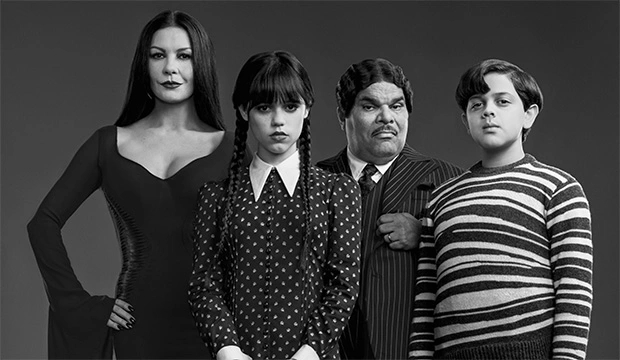
I don’t think I had watched anything with Catherine Zeta-Jones since the late 90s. One of two things has happened since then. Either she has become a far worse actress than once she was, or my memories have credited her with being far better than ever she was. Either way, I found her performance as Morticia Addams to be pretty iffy. I think she looks the part. The costume and makeup people have clearly done their jobs. I just did not care for her performance.
The same goes for her on-screen partner, Luis Guzmán. He manages to capture the affection and devotion that Gomez Addams feels towards his wife, but he imbues the character with no energy. He’s not the suave, intelligent Gomez that leads his family in their joyous depravity. This was disappointing, as I really like Guzmán. It just didn’t work. Thankfully, the rest of the family do not make regular appearances through this first season of Wednesday, so it’s not the constant distraction or irritation that it could otherwise have been.
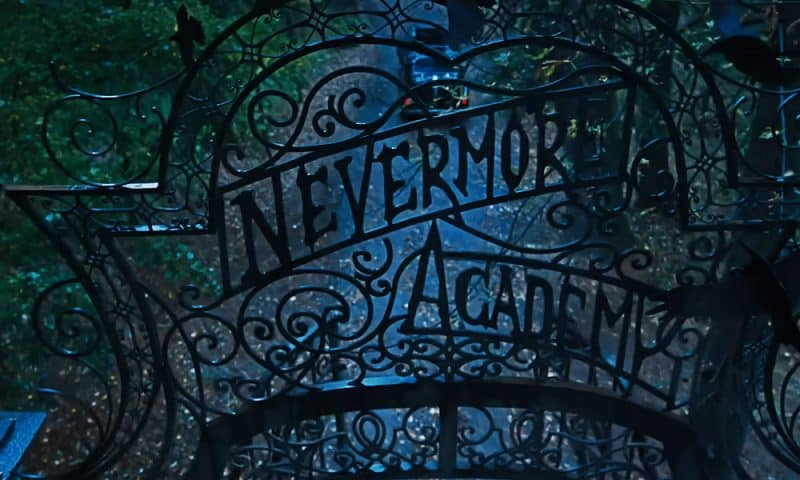
In terms of setting, I’ve already shared my misgivings at surrounding Wednesday with other ‘outcasts’ and thereby diminishing her otherness. Despite this, the setting is quite interesting. The story is largely set at the Nevermore Academy and the nearby town of Jericho. Nevermore is very cool. The place is suitably spooky and is inhabited by all sorts of strange creatures. The largest collective groups are Werewolves, Vampires, and Gorgons. There are others with more unique powers, but these appear to be the majority. These groups form natural cliques, though there are plenty of interactions between them. The uniform is quintessentially Burton; resplendent in black and purple stripes.
The town of Jericho is an old colony town with a rich history of persecuting people who are different in the name of religion. The initial appearance of teenage boys in pilgrim outfits was laughably ridiculous (and somewhat on the nose) and only gets sillier when it is explained that they work at the nearby attraction, Pilgrim World. The relationship between the school and the little town is a recurring theme throughout the show. The town is suspicious of the Nevermore kids, but the school essentially subsidises Jericho, leading to an uneasy, reluctant, and oft-punctured tolerance. I suppose Jericho provides that contrast between Wednesday and the ‘normies’ that would otherwise be missing.
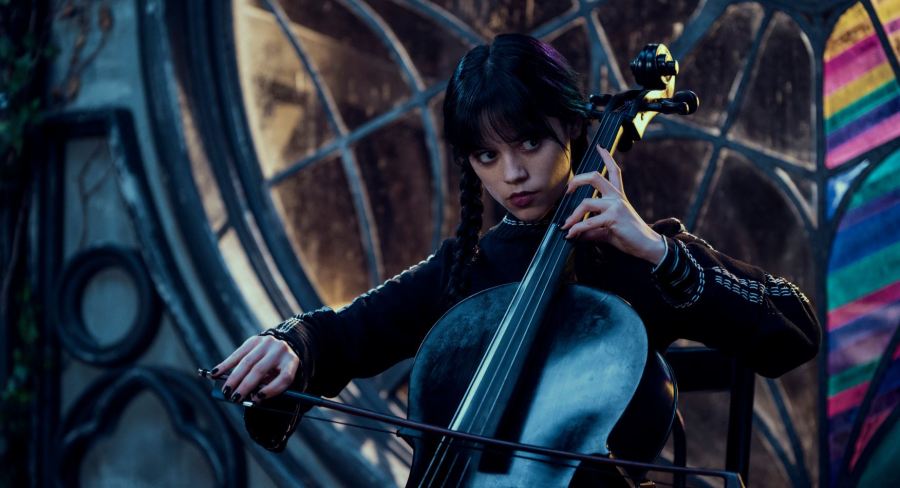
The premise of the show changes as the story progresses. It begins as a teen drama, much in the vein of the sorts of shows put out by the CW. This may be a strong criticism, depending on your view of the CW. It really begins as something of a fish-out-of-water story as Wednesday settles into her new school. Soon, it begins to evolve into more of a mystery/investigation sort of thing. This shift provides more of a structure to the show as it progresses, and gives a lot of the context for subsequent character interactions.
How effective a detective Wednesday might be is something that could be debated. There are a lot of red herrings, she throws around a lot of theories, and she is uncharacteristically impulsive in jumping, seemingly head-first, into whatever plan occurs to her.
That said, I did enjoy the journey; the adventure. I actually enjoyed the show as a whole. The performances of the young cast (and Christie), the setting, the wit and charm of the script, and just the whole carefully-cultivated feel of the show made for a compelling experience. I was genuinely surprised at the emotional component of the show, and I find myself not only satisfied with the conclusion of this first series, but eagerly awaiting the next. Ortega’s performance also needs to be singled out as exceptional. Consider this a strong recommendation to watch a show that, whilst not perfect, is really quite excellent.
Part 2: Running a Game
I do think that the worldbuilding in this show is pretty fantastic. It sets a tone that would work well in a game. In considering how I would run such a game, I’ve thought about approaching it from three different angles; namely those of:
- Relationships between teenage monsters
- Monster-themed adventuring
- Teens investigating mysteries
For each of these angles, I’ve considered pair of games that could be used to facilitate a game.
Option 1: Relationship-Based Play
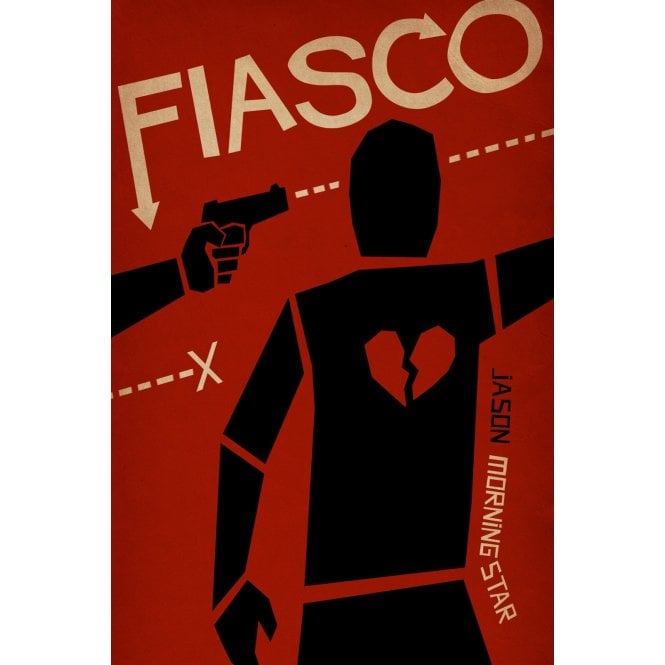
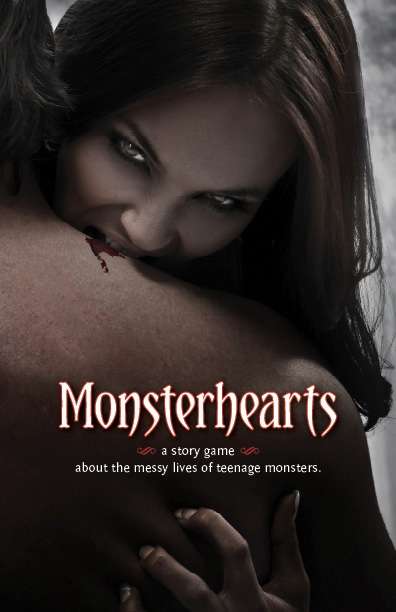
As a teen drama, the interaction between characters is really key to the story. Not only is this a drama wherein interrelationships are key, but it’s also set in a boarding school. Such environments often act as a microcosm of wider society, creating intense relationships that develop and change at a quick pace. Add to this further the fact that this boarding school is full of pubescent monsters and we have ourselves an interesting and potentially volatile situation.
Fiasco is a game that we love here, and one that we have recommended several times before. The setup stages of Fiasco involve creating characters, defining the relationships between these characters, and setting up an interesting premise from which to proceed. I feel that any character-driven play could use Fiasco’s ruleset to create dramatic situations that would reflect the potential volatility of a boarding school full of teenage monsters struggling with relationships, puberty, and their own individual powers.
Another game that directly addresses those games is Monsterhearts. This PBTA title is specifically about “the messy lives of teenage monsters”. The game treats the titular monsters as metaphors for real-world problems. This is done pretty well in Wednesday. The challenges that Wednesday experiences alongside her prophetic visions are well-explored, as are those experienced by her roommate, Enid. Enid is a werewolf who, thus far, has not “wolfed out”. This is a source of tension for Enid, both with the other werewolves at the school and with her parents. I’d say this metaphor is one that isn’t resolved in a completely satisfactory way, but it’s just perfect fodder for exploration in a game like Monsterhearts.
As a PBTA game, Monsterhearts comes with playbooks that each describe one of the monster types featured in the game. I think these would minimal (if any) tweaking to be appropriate. My only real suggestion would be to create a suitable Gorgon, use The Queen playbook to represent the Sirens, and adjust The Witch to be more of a seer to accommodate characters like Wednesday (and Morticia, come to that).
If you’re looking to really lean into the teen monster vibe, these are the games I’d consider.
Affiliate Links:
Option 2: Teens on Adventures
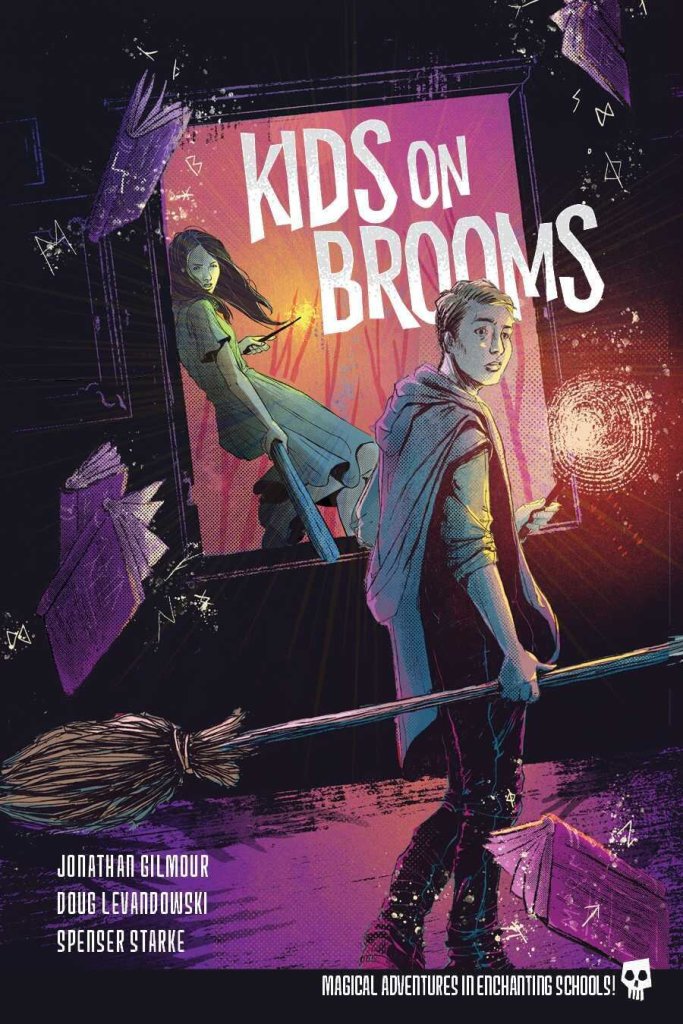
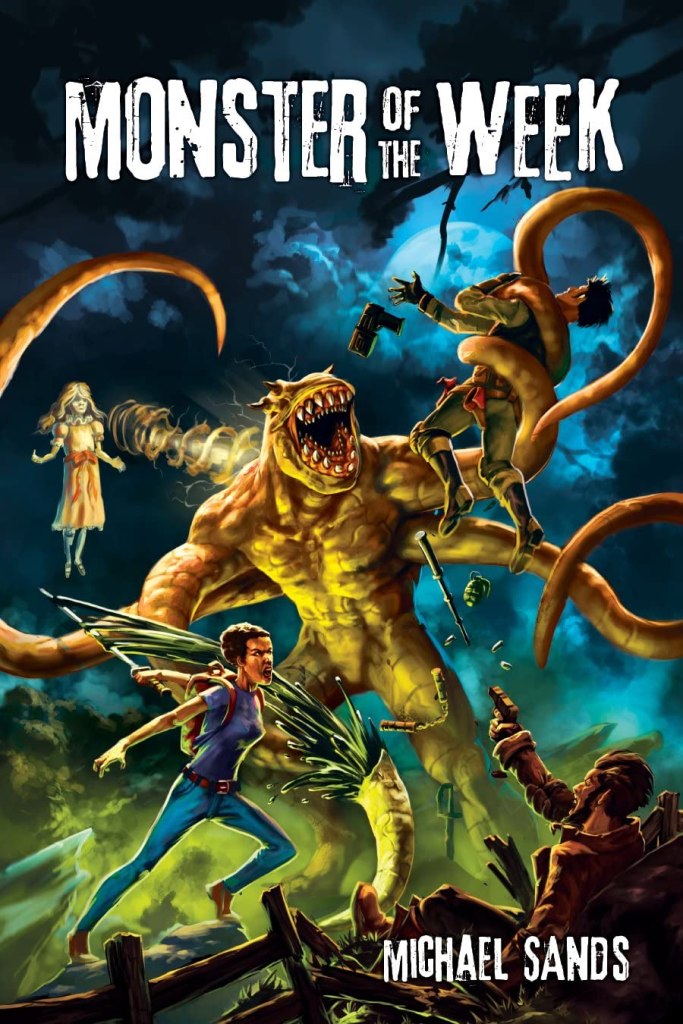
It has been noted in some reviews and online comments that some viewers got Potter-esque vibes from this show. I suppose it’s the whole boarding school aspects, the themes of friendship, the adventuring, and the monster-themed powers/abilities as a stand-in for the magic of the Harry Potter series. I don’t necessarily agree that it’s a great fit, but I suppose there are parallels.
With that in mind, another game that might fit the bill is Kids on Brooms, the magic-themed spinoff of Kids on Bikes. The publishers describe some key aspects of the game:
- Wielding wands, riding brooms, brewing potions, and casting powerful spells
- Facing down mythical beasts and searching for school secrets
- Making sure you hand your homework in on time
The first of these (the magic) is admittedly not the best fit. This is where a bit of tweaking is going to be necessary. Rather than giving a more open approach to spells, the idea would be to tailor ‘spells’ to reflect the powers of certain characters. For example, you might employ a petrification spell to represent the powers of a Gorgon. A little clumsy, perhaps; but it’s an option.
The second two bullet points are a much better fit. The show sees the characters face down a monster, and it’s safe to say that there are long-kept secrets within the grounds of Nevermore. Couple these supernatural aspects with the mundanity of a school and you’ve got some interesting contrasts on the go.
On the other hand, we can look to a more generic format with another PBTA game, Monster of the Week. The focus of these games would not necessarily be on the nature of your characters, but on the mysteries they endeavour to solve. Any extra powers that player characters may possess could be dealt with incidentally by the GM.
Being a system aimed at episodic play, this could be an interesting option for groups who wish to run a longer series of sessions wherein a number of different monster encounters are staged or mysteries solved. The game contains a set of mystery-creation tools that will help GMs to run their games effectively, using interesting, bespoke mysteries. The simple ruleset will also be good for new players who may be coming to this from a view of being fans of the show or theming, rather than as seasoned players of roleplaying games.
Affiliate Links:
Option 3: Teen Investigations
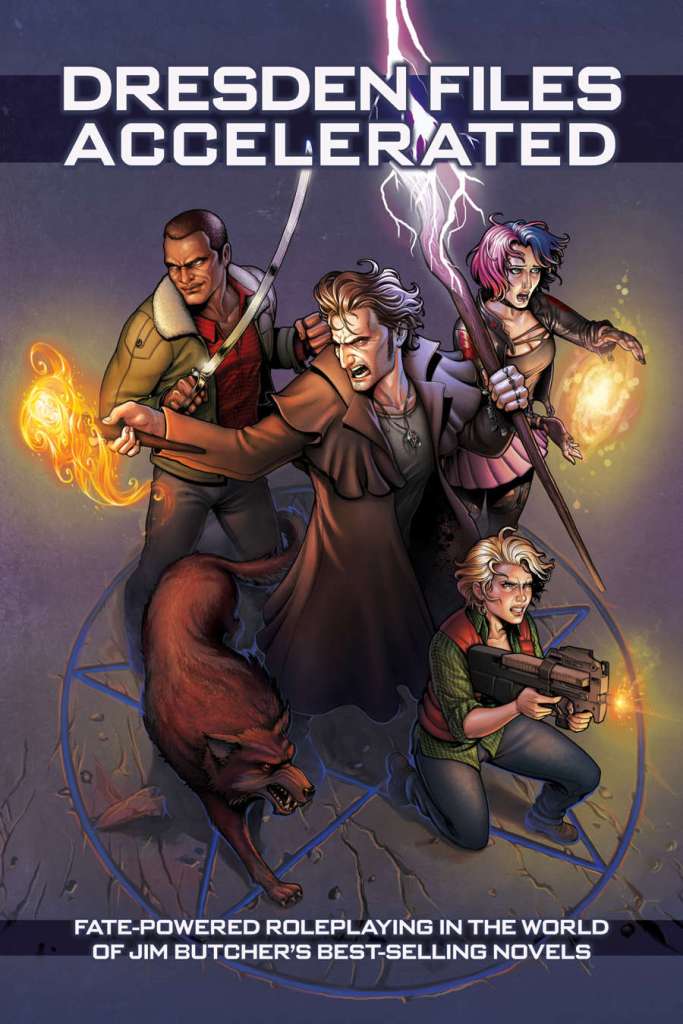
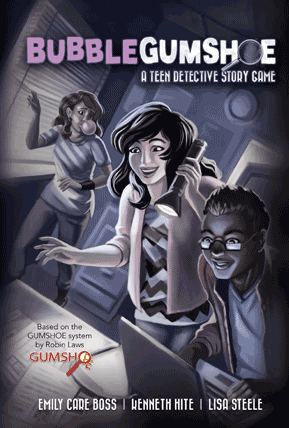
With the talk of mysteries, we’ve got one more angle to focus on; namely, the investigation. Again, we’re looking at two angles for this; one of which focuses on the investigators and their powers, and one of which is more about the investigations themselves.
The first of these titles is Dresden Files Accelerated. Now, I’ve recently espoused my love of the Dresden Files Roleplaying Games, so it’s likely no surprise to see me recommending it here. This game uses the incredibly flexible FATE Accelerated system to create a light, accessible experience for players. The game comes with a number of ‘mantles’ for different types of inhuman creatures on which to base a character. FATE’s Aspects system will empower players to create unique characters with distinctive abilities, experiences, and personalities, and will encourage players to play to their characters, rather than to the game, as it were.
I think the thematic overlap between The Dresden Files and Wednesday will help to make this book a good fit for such games.
My final suggestion for a game system to use for Wednesday-themed games fully embraces the investigative elements of the show. Bubblegunshoe is a game of teenage detectives carrying out investigations. It uses the Gumshoe system, which is entirely built around facilitating investigative games.
Features that will be crucial to the success of these games include rules to build and maintain a web of relationships between characters and NPCs, rules for town creation to create appropriately compelling settings for your games, some mystery hooks, advice for running mysteries, and more. The Gumshoe system that forms the basis of Bubblegumshoe is all about investigations. By setting core clues, the system aims to ensure that players are able to get to clues via roleplaying and sensible investigations and won’t miss out on key plot points simply because of bad dice rolls. The game isn’t really about finding clues, but is instead about interpreting them.
This is a theme that we see represented in Wednesday, where the characters often have interesting clues, but are not always fully aware of what they mean in the wider context of the investigation. This interpretation of clues that have been discovered is far more interesting and fun than finding a potentially abstract and obscure clue.
Affiliate Links
Conclusion
As a TV show, I enjoyed Wednesday. There were a few fundamental issues in the concept that didn’t quite fit the established theme of the character but, putting those aside, you’ve still got a very good series. The performance of the star, Jenna Ortega, is going to prove to be iconic.
As the jumping-off point for a game – specifically a roleplaying experience – you’ve got a fantastic concept and setting in the Nevermore Academy. There are a wealth of games and systems that could really capitalise on this setup and give the prospective GM something to work with.
Personally, I’d likely go down the route of using Bubblegumshoe or Monsterhearts for longer games. For a one-shot, these would also work, but I’d likely look to bring Fiasco into the mix. It has such a quick and easy system for defining relationships and can run well without a GM, and with minimal preparation. There are options, and it’s a credit to the show that it’s broad enough in both theme and appeal that there are so many different angles from which to approach a game.
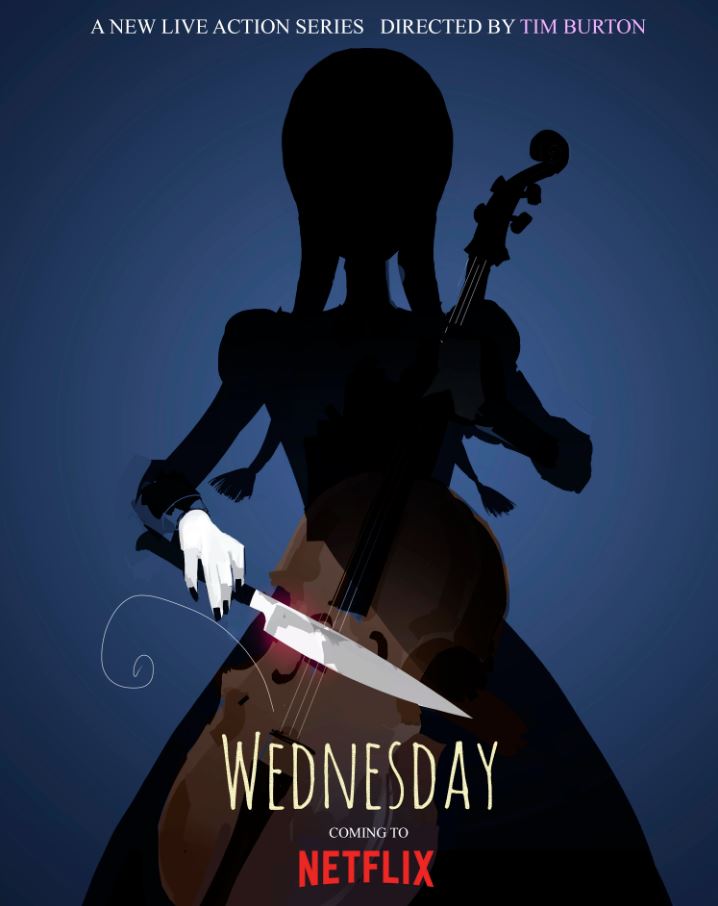

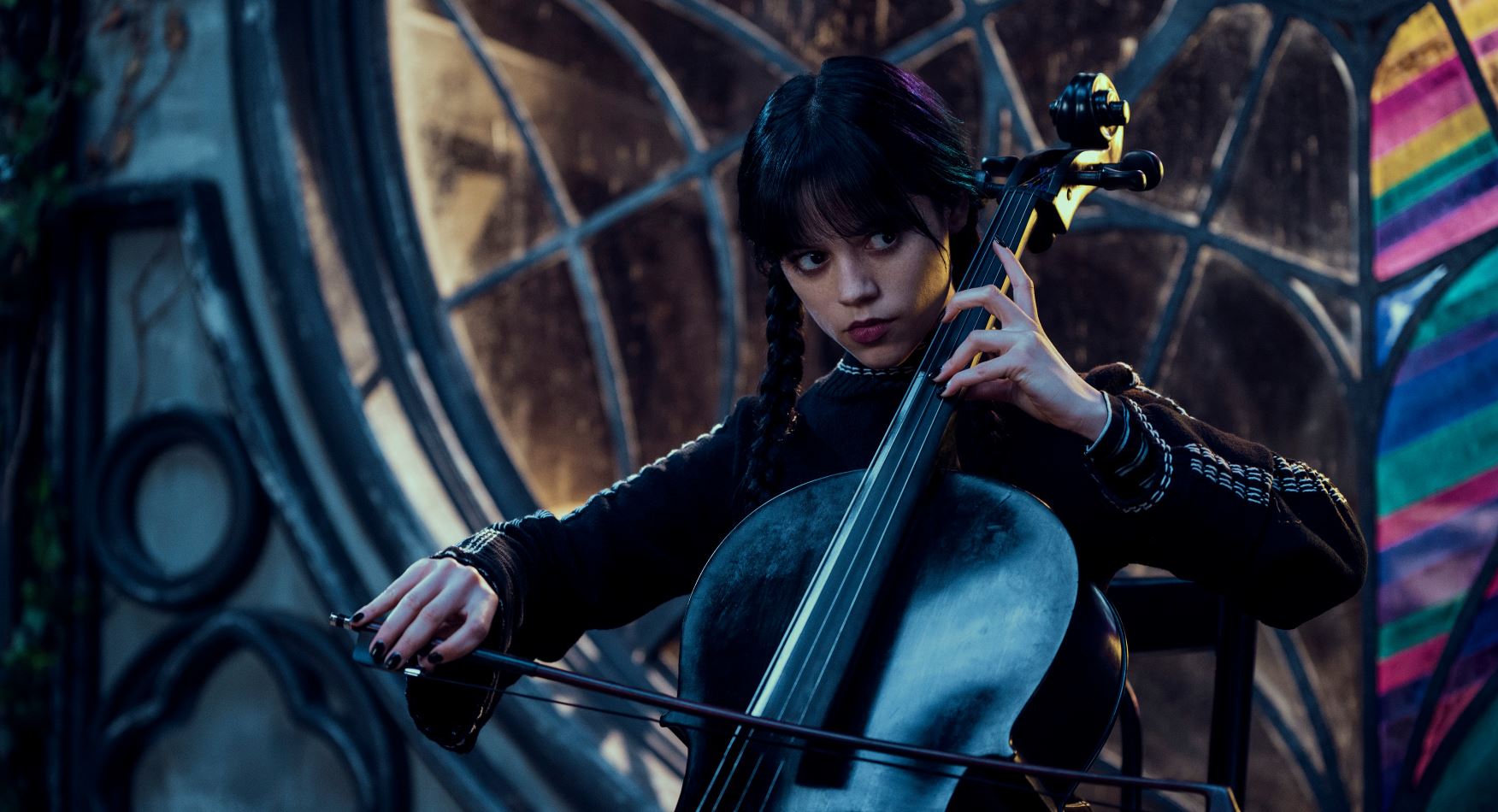
I’m 4 episodes in right now, but one thing I can definitely share with you is Guzman is totally miscast. I like him as an actor but he brings none of Gomez’ suave attitude to the role (I say that having only seen the first episode with the parents, though I know they do come back). I’m definitely enjoying it, though.
LikeLike